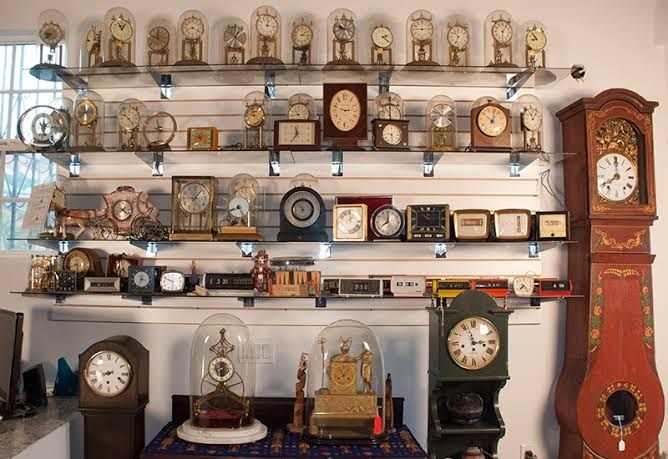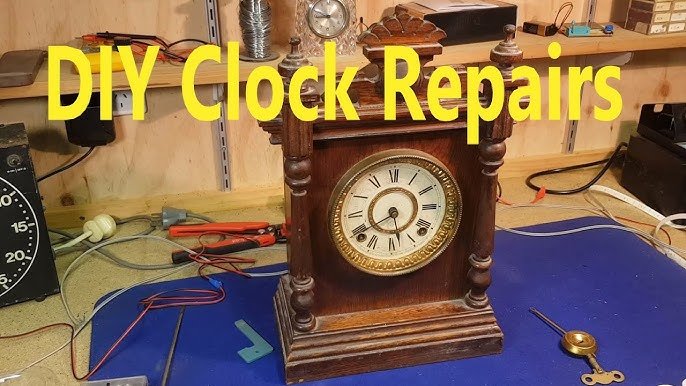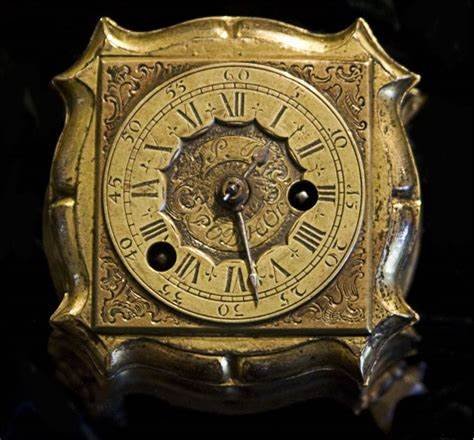Clock repair can be a fascinating and rewarding hobby, blending technical skills with an appreciation for craftsmanship. Whether you’re looking to restore an old family heirloom or simply enjoy fixing things, understanding the basics of clock repair can set you on the right path. This guide covers essential tools, common problems, and fundamental techniques to help beginners get started with clock repair.
Essential Tools for Clock Repair
Before diving into repairs, it’s important to have the right tools. Here’s a list of essential tools every clock repair beginner should have:
- Screwdrivers: A set of small screwdrivers with various head types (flathead and Phillips) is crucial for disassembling clocks.
- Tweezers: Fine-tipped tweezers are useful for handling small components without causing damage.
- Pliers: Needle-nose and flat-nose pliers can help manipulate and secure small parts.
- Clock Oil: Special clock oil is necessary for lubricating moving parts to ensure smooth operation.
- Magnifying Glass: A magnifying glass or loupe helps inspect tiny parts and details.
- Cleaning Brush: A soft brush removes dust and debris from delicate components.
- Clock Repair Kit: Some kits come with a variety of tools and parts specifically designed for clock repair.
Common Clock Problems and How to Fix Them
Understanding common issues and their solutions can help you tackle clock repair tasks more effectively. Here are some frequent problems and tips for addressing them:

1. Timekeeping Issues
Problem: The clock is running fast or slow.
Solution:
- Adjust the Pendulum: For mechanical clocks, adjusting the pendulum’s length can correct timekeeping. Shortening the pendulum speeds up the clock, while lengthening it slows it down.
- Check the Gear Mechanism: Ensure the gears are properly aligned and lubricated. Misaligned or dirty gears can affect timekeeping accuracy.
2. Chiming Problems
Problem: The clock’s chimes are not working correctly.
Solution:
- Inspect the Chime Mechanism: Check if the chime rods and hammers are properly positioned. Adjust the hammers so they strike the rods accurately.
- Clean the Mechanism: Dust and debris can hinder chime function. Clean the mechanism carefully to restore proper operation.
3. Sticking or Stopping
Problem: The clock sticks or stops frequently.
Solution:
- Lubricate the Moving Parts: Apply clock oil to the gears and moving components. Be careful not to over-oil, as excess oil can attract dust.
- Inspect for Obstructions: Look for any obstructions or debris that may be causing interference with the mechanism.
4. Winding Issues
Problem: Difficulty winding the clock or the winding key feels loose.
Solution:
- Check the Winding Mechanism: Inspect the mechanism for wear or damage. Tighten any loose components and ensure the key fits properly.
- Replace the Winding Key: If the key is damaged or worn, replace it with one that matches the clock’s specifications.
Basic Clock Repair Techniques
1. Disassembling the Clock
- Work in a Clean Area: Set up a clean, well-lit workspace to avoid losing small parts.
- Document the Process: Take photos or make notes as you disassemble the clock. This helps during reassembly.
- Handle Parts with Care: Use tweezers and avoid touching delicate components with your fingers to prevent damage.
2. Cleaning the Clock
- Remove Dust and Debris: Use a soft brush or compressed air to clean dust from the internal components.
- Clean Gears and Parts: For deeper cleaning, use a non-abrasive cleaner specifically designed for clock mechanisms. Avoid using water, which can damage the clock.
3. Lubricating the Clock
- Apply Clock Oil: Use clock oil sparingly on moving parts to ensure smooth operation. Apply oil only to the points of friction and avoid over-lubrication.
4. Reassembling the Clock
- Follow Your Documentation: Use the photos or notes taken during disassembly to guide the reassembly process.
- Test the Mechanism: Once reassembled, test the clock to ensure it is working correctly. Make any necessary adjustments to improve performance.
When to Seek Professional Help
While many clock repairs can be handled by beginners, some issues may require professional expertise. If you encounter complex problems, such as electronic component failures or intricate mechanical issues, consulting a professional clock repair technician is recommended.
Conclusion
Clock repair for beginners involves understanding essential tools, common problems, and basic repair techniques. With practice and patience, you can effectively address common issues and enjoy the satisfaction of restoring timepieces to their former glory. Remember to work carefully, keep your tools and workspace organized, and seek professional help for more challenging repairs. Happy clock fixing!





Das kannst du zum Beispiel daran sehen, dass mit diesem Casino
zahlreiche renommierte Spielehersteller, aber auch Zahlungsanbieter zusammenarbeiten. Auch ein Casino ohne Verifizierung ist
seriös und sicher, denn es ist ebenfalls von einer Regulierungsbehörde
lizenziert und wird regelmäßig überprüft. Wir sind uns sicher, dass es nur
noch wenige Jahre dauern wird, bis man mit der VR-Brille durch online Casinos läuft.
Auch mit der kommenden virtuellen Spielwelt werden online Casinos immer mehr ins Rampenlicht
rücken. Natürlich ist das Spielgefühl in online
Casinos nicht ganz mit dem heimischen vor Ort vergleichbar.
Auf Ihrem Glücksspielabenteuer sind Sie vielleicht auf ein Casino ohne Verifizierung mit Sofortauszahlungen gestoßen. Wenn Sie spielen möchten, richten Sie einfach ein Konto ein,
tätigen Sie eine Einzahlung und spielen Sie. Auf der Website können Sie sofort
loslegen und um echtes Geld spielen, ohne Ihre
Daten bestätigen zu müssen.
Der KYC-Prozess in online Casinos kann unter Umständen eine langwierige Angelegenheit sein.
In Online Casinos ohne Verifizierung verzichtet man auf den Identitätsnachweis mit Ausweisdaten, was
die Registrierung immens beschleunigt. 100% Willkommensbonus bei der Registrierung
Und schließlich bieten sie eine Vielzahl von Spielen mit Boni und Werbeaktionen.
References:
https://online-spielhallen.de/quickwin-casino-promo-code-ihr-weg-zu-exklusiven-boni/
Sie sollten sich zuvor mit dem Regelwerk vertraut machen, bevor Sie ohne Limits Casino Online spielen. Im Online
Casino ohne Einsatzlimit spielen hat den Vorteil, dass Ihre Gewinne
potentiell sehr hoch ausfallen können. Ohne Limit Casino spielen heißt
also auch, keine unnötigen Pausen hinnehmen zu müssen.
Ohne Einsatzlimit mit Echtgeld im Casino spielen – ist das sicher?
Wer ohne Limits und ohne lästige 5 Sekunden Pause spielen will und mobilen Komfort schätzt, ist bei Spinsy gut aufgehoben.
Du kannst deine Strategie voll ausspielen, die Einsatzhöhe pro Runde ist oft
frei wählbar. Du kannst dich an Jackpot Slots, Tischspielen, Crash
Games und mehr ausprobieren, ohne dass dich Einsatzbeschränkungen bremsen. Vor allem Vielspieler werden mit Reload- und Wochenendboni belohnt.
Mit diesen kannst du schnell einzahlen und sofort losspielen.
Gemäß den aktuellen Gesetzen müssen Glücksspielanbieter strenge Vorgaben einhalten, um den Schutz von Spielern zu
gewährleisten und problematisches Spielverhalten einzudämmen. In Deutschland
werden alle Glücksspiele gemäß dem Glücksspielstaatsvertrag von 2021 (GlüStV) geregelt.
Um solche lockeren Spielbedingungen anbieten zu können, operieren diese Casinos mit ausländischen Lizenzen.
References:
https://online-spielhallen.de/spinanga-casino-login-ihr-tor-zur-welt-des-online-glucksspiels/
This helps us make sure every platform we show is
one of the top online casino Australia sites. Wondering where your
next favourite place to gamble online for real money might be?
The top Australian online casino sites on this page all passes these tests.
Top Australian online casino sites use 256-bit SSL encryption to protect your
personal and financial data. For a real casino vibe, live dealer games are unbeatable.
Fast payouts and mobile gaming are top priorities, driving sites
like Jet4Bet Casino to optimise for speed and accessibility.Top casinos partner with
giants like NetEnt, Pragmatic Play, and Evolution Gaming.
State regulations for online gambling vary significantly across Australia, affecting
land-based casinos and sports betting. A loophole in the Act allows social casinos to operate without regulation, as they are not classified
as gambling sites. Many cryptocurrency casinos provide substantial welcome bonuses, sometimes up to 6 BTC.
They offer convenience and ensure financial information remains secure, letting players focus on their gaming experience.
No deposit-free spins allow players to try games without making a deposit, while
regular free spins usually come in welcome packages. These tiered welcome bonuses can make the initial deposit stretch
further, providing more opportunities to play and win.
References:
https://blackcoin.co/8_vip-casinos-uk-high-roller-casinos-fast-withdrawals_rewrite_1/
Customers have expressed mixed feelings about several aspects of the platform.
Most reviewers were unhappy with their experience overall.
🚀 For security reasons, withdrawal requests are processed manually.
This is a deposit match-up to a certain amount to help you top up your account during the weekdays or
weekends. At LevelUp Casino, four welcome bonuses are available for your
initial four deposits. You should be aware, though, that
the bonus has wagering restrictions, which make withdrawals take longer.
The LevelUP live casino offers a bit more than 20 games
from the providers Beterlive and Atmosfera. The range caters to players of all budgets and a good number of the games are low stakes.
That’s why players choose a more convenient option such as cards or e-wallets like Venus Point, which can handle fast deposits and withdrawals.
Loyal players also get a weekly cashback and numerous
other bonus offers, including special rewards in the VIP program.
The casino’s dedication to responsible gaming and its commitment to a secure, fair, and enjoyable environment makes it a top choice
for players across Australia. The team is
committed to ensuring that every player has a seamless and enjoyable experience, with minimal disruption to their gaming activities.
References:
https://blackcoin.co/getting-royal-panda-casino-bonus-without-depositing/
This monumental offer doubles your initial deposit, extending playtime dramatically.
Demo modes let you test games risk-free before committing real
money, building confidence through practice. The NeoSpin casino login grants instant access to over
80 table game variants. Baccarat tables cater to both casual players
and high rollers seeking substantial stakes.
Neospin Casino emphasizes responsible gambling to ensure a safe and enjoyable experience for all players.
VIP players receive exclusive bonuses, higher withdrawal limits,
and access to special events. One of the most popular promotions is the reload bonus,
where players receive extra funds when depositing on specific days.
These promotions often include reload bonuses, cashback
offers, and free spins, helping to maintain excitement for regular users.
To claim the welcome bonus, players need to make a qualifying deposit
and opt-in for the offer. Specialty games provide casual and alternative betting options, catering
to different player preferences.
References:
https://blackcoin.co/casino-rocket-australia-your-next-favourite-online-spot/
Once a casino receives at least 10 user reviews, we calculate its User feedback score, which ranges from Terrible to Excellent.
In each review, we collect and evaluate more than 200 pieces
of information about a casino. Using a complex review methodology, our dedicated
casino review team calculates each casino’s Safety Index.
This is the reason why we go through each game selection and
make sure you have the choices that you need. Pokies,
or slot machines, are the most beloved form of gambling
in Australia.
The 250% welcome offer bonus is generous and flexible, giving
you a solid bankroll boost right from the get-go, which can be used across a wide range of games, including
live dealer tables. You can also chat with the dealer, observe quietly, or fully engage socially,
depending on your preference, making live casino games highly adaptable to different
playstyles. The generous A$5,500 welcome bonus works best if you clear wagering on eligible pokies first,
then transition into live dealer games, where wagering contributions are lower.
What’s more, it also offers players a casino and sportsbook, making it an all-round gambling site.
Players won’t just find poker though – they’ll also find
loads of casino games and some great bonuses. To live up to its name, this casino offers 100 free spins on a
Sunday, awarded to current players with $100 in their account.
It’s the go-to card game at many Australian casinos online.
A few sites even let you play crypto slots or crash games for something
different. You’ll find thousands of pokies, dozens of blackjack and roulette tables, and live-streamed dealer games.
References:
https://blackcoin.co/richard-casino-no-deposit-bonus-promo-codes-tournaments/
online casino with paypal
References:
empleos.jsbackup.com
online casino paypal
References:
https://wisewayrecruitment.com
us online casinos that accept paypal
References:
https://icmimarlikdergisi.com/kariyer/companies/best-paypal-casinos-2026-uk-casino-sites-accepting-paypal
casino con paypal
References:
workfind.in
us online casinos paypal
References:
iqschool.net
us poker sites that accept paypal
References:
sosjob.ca